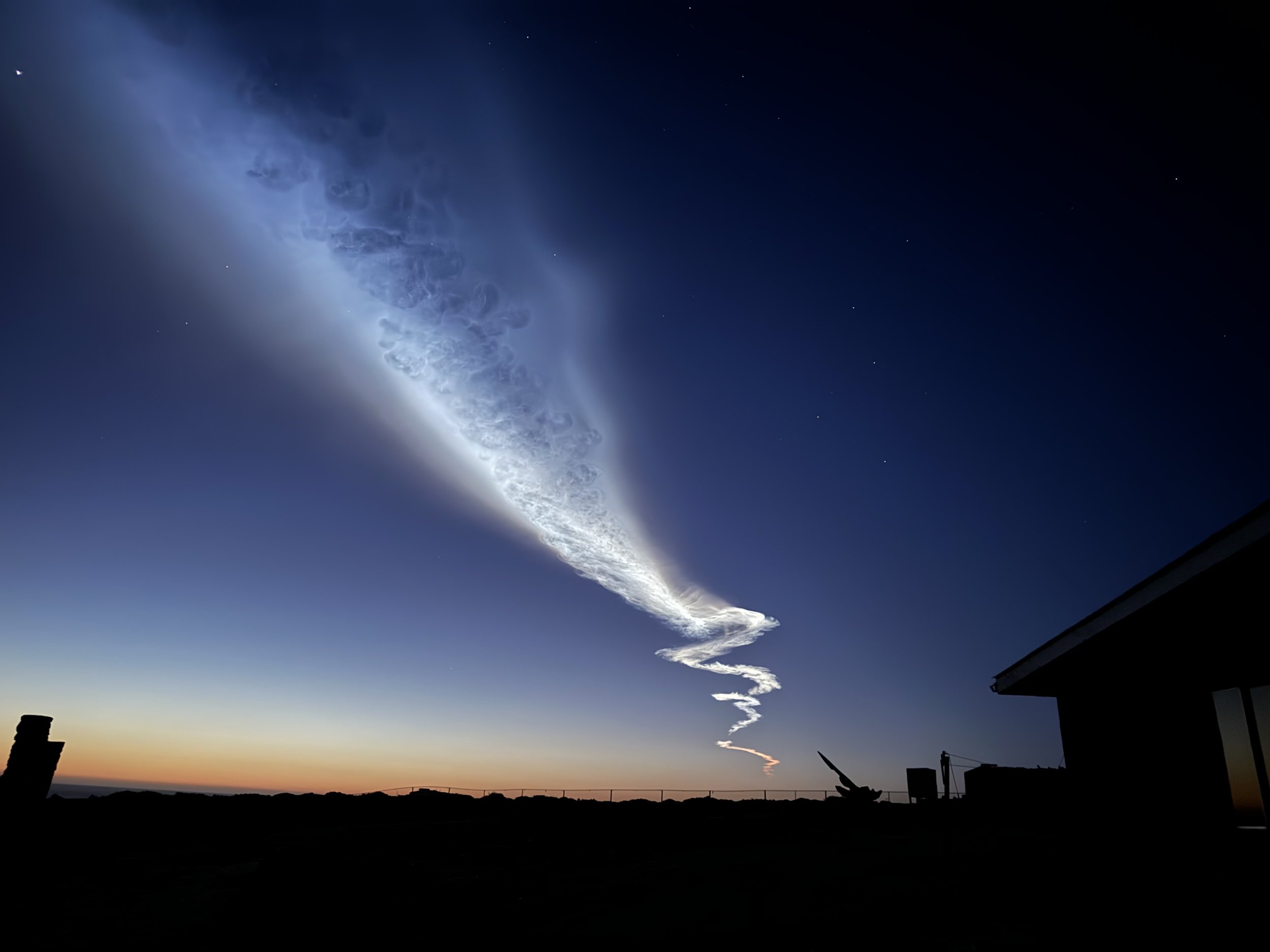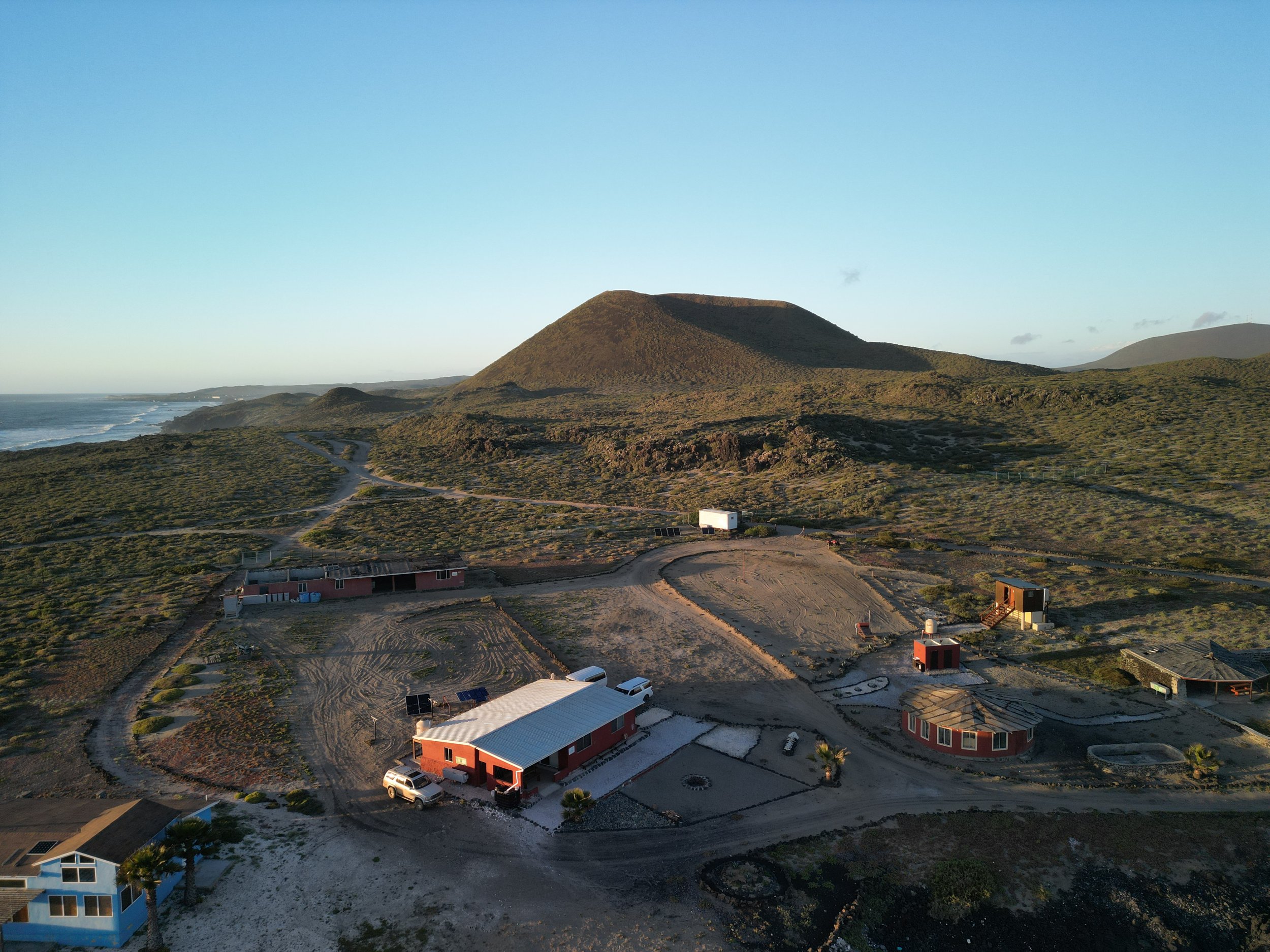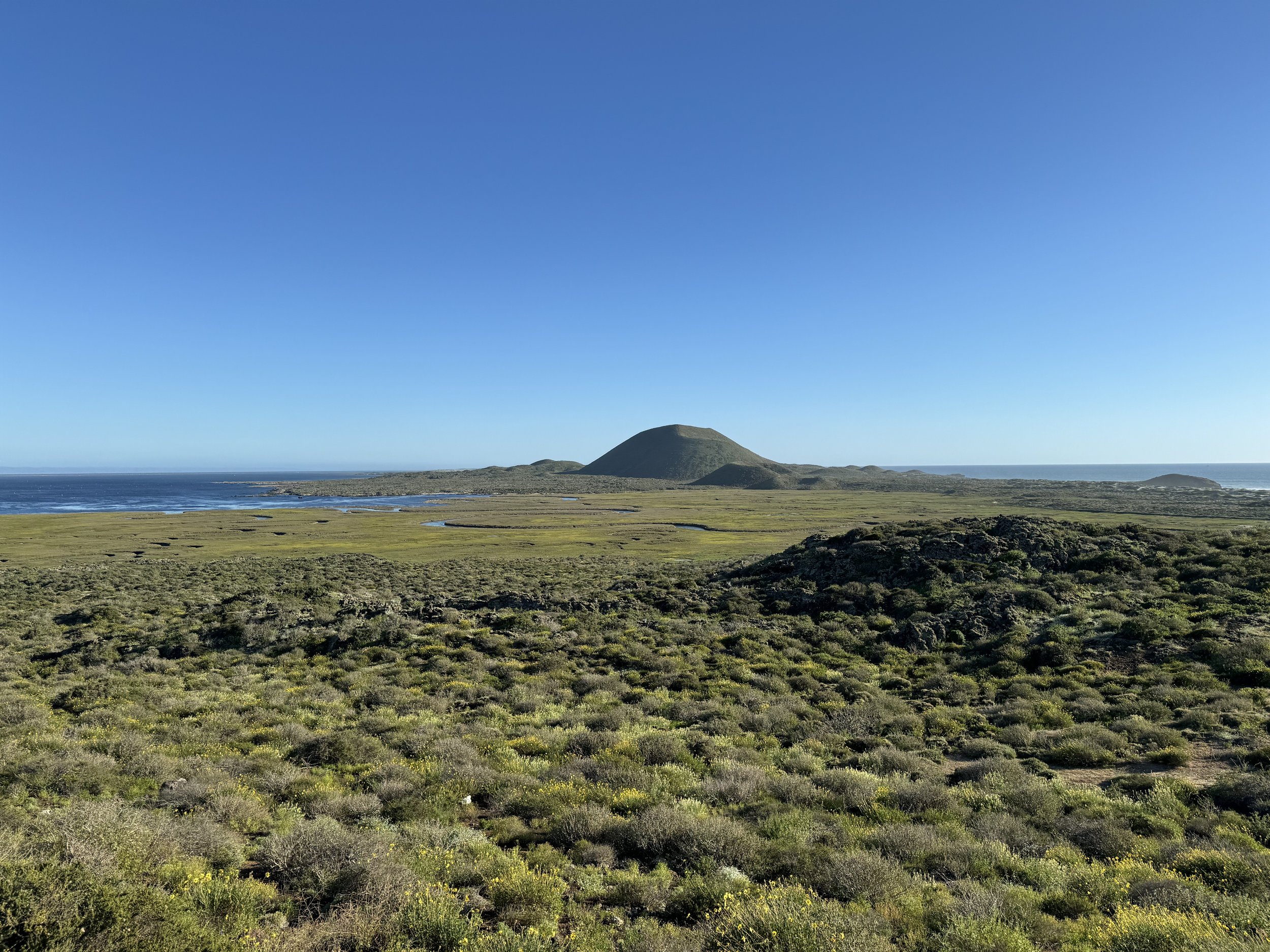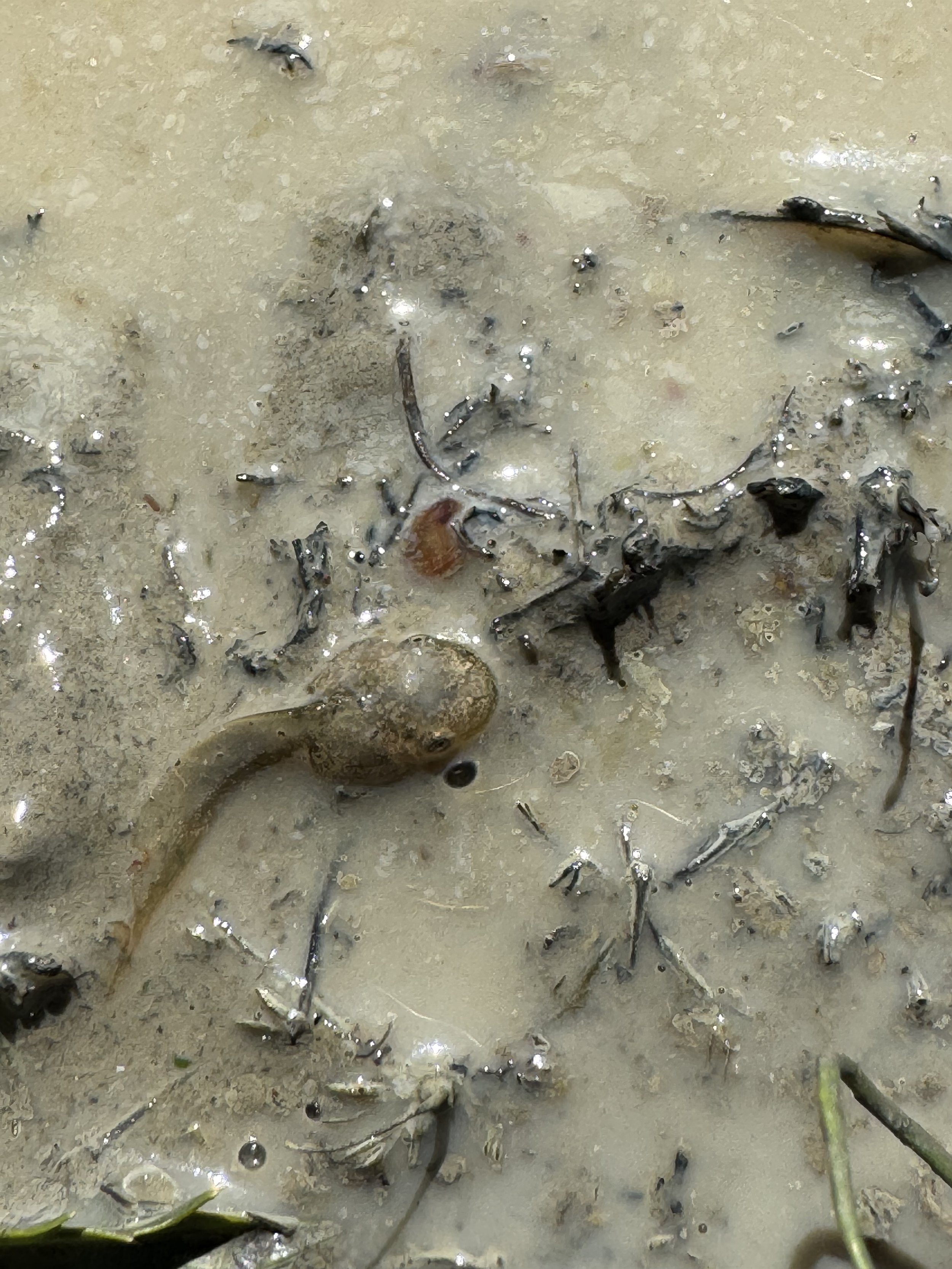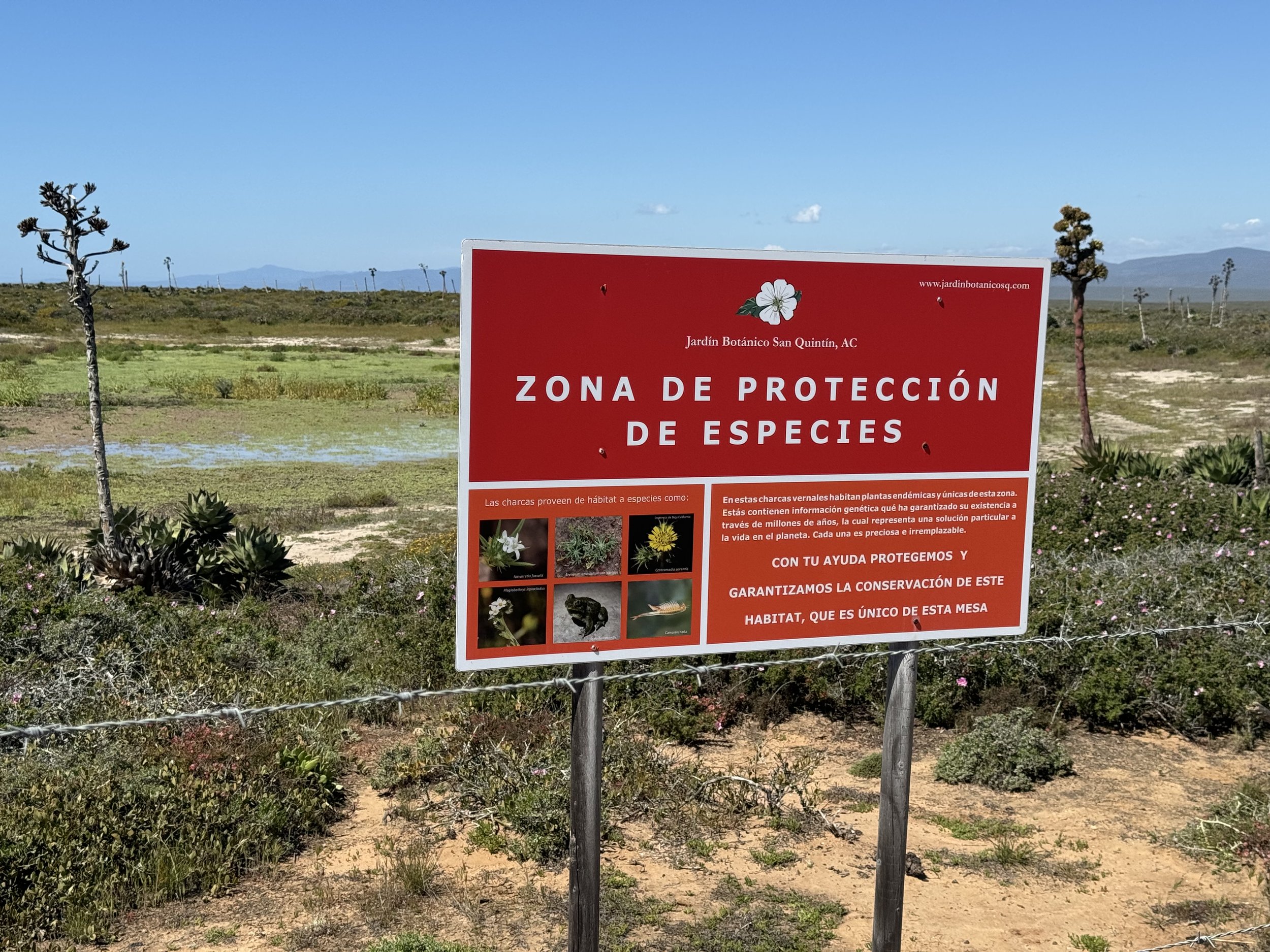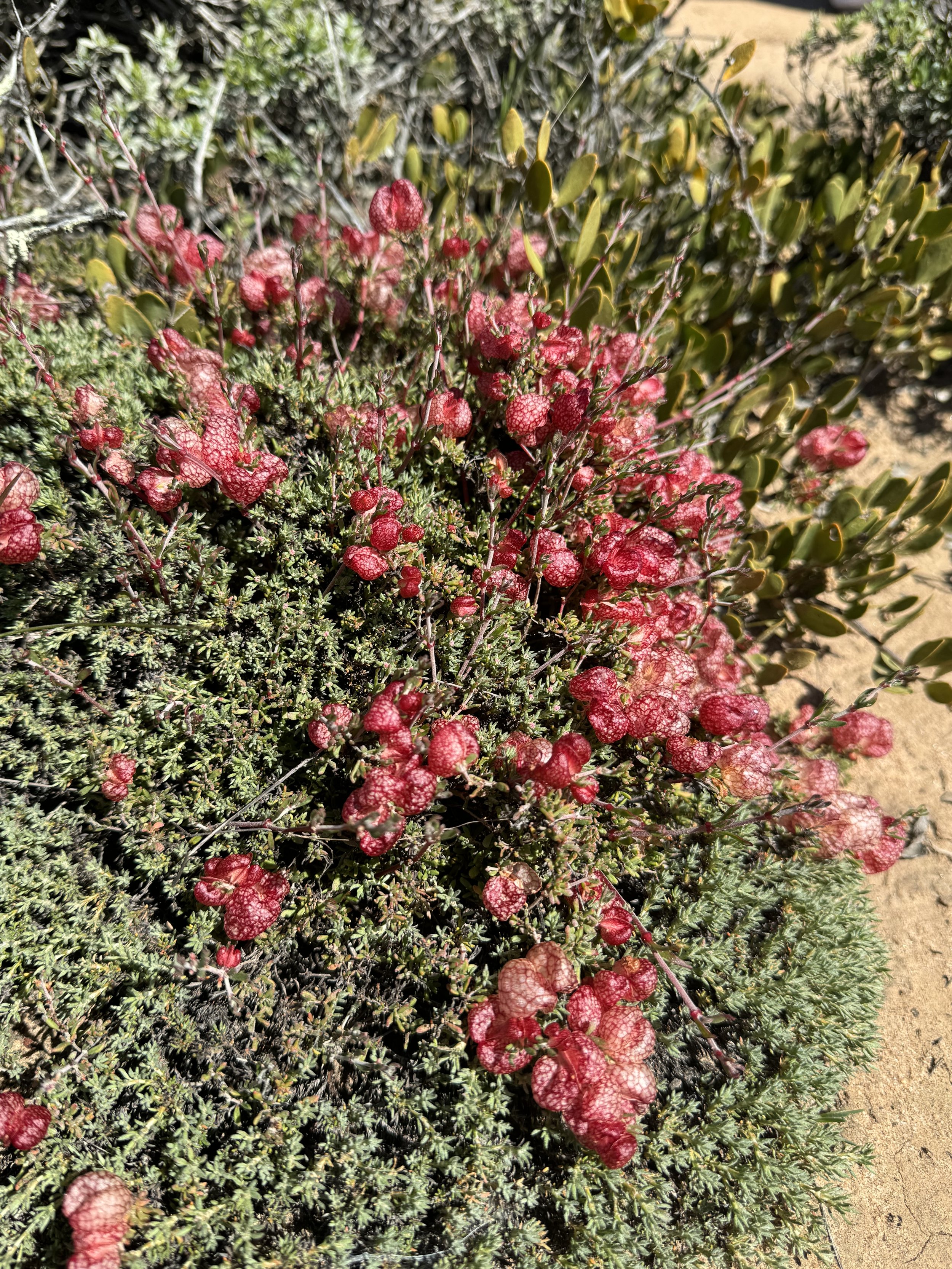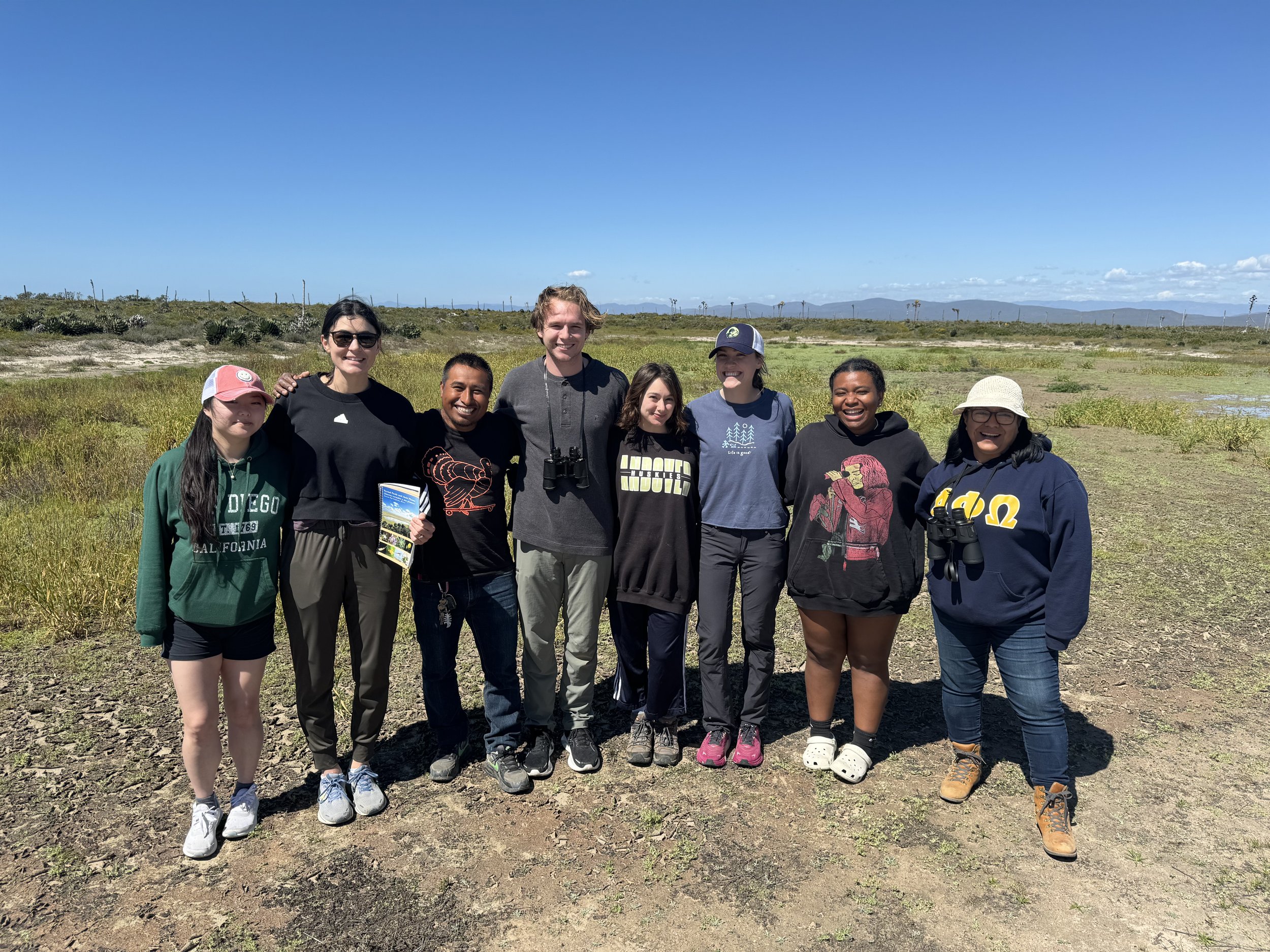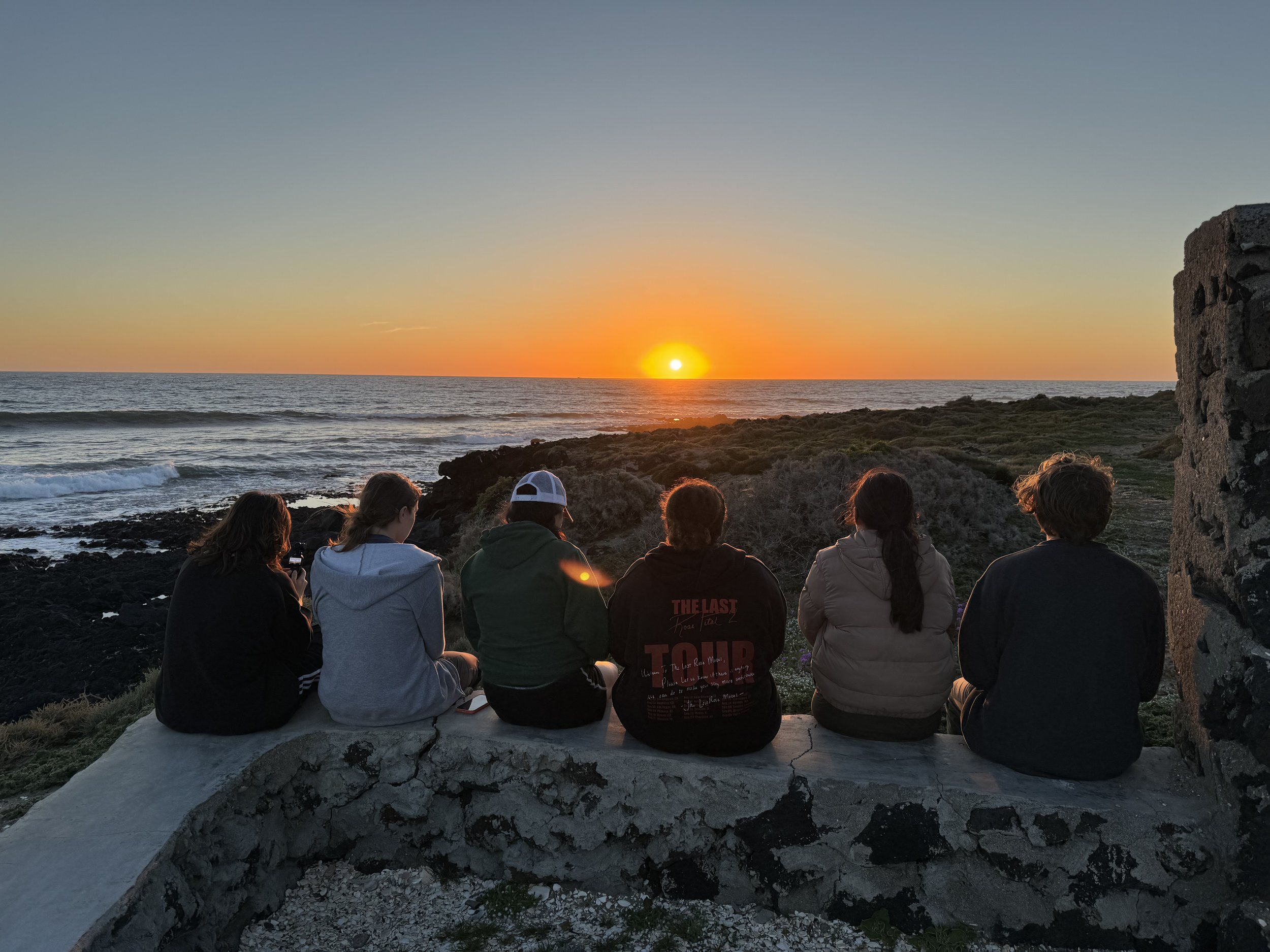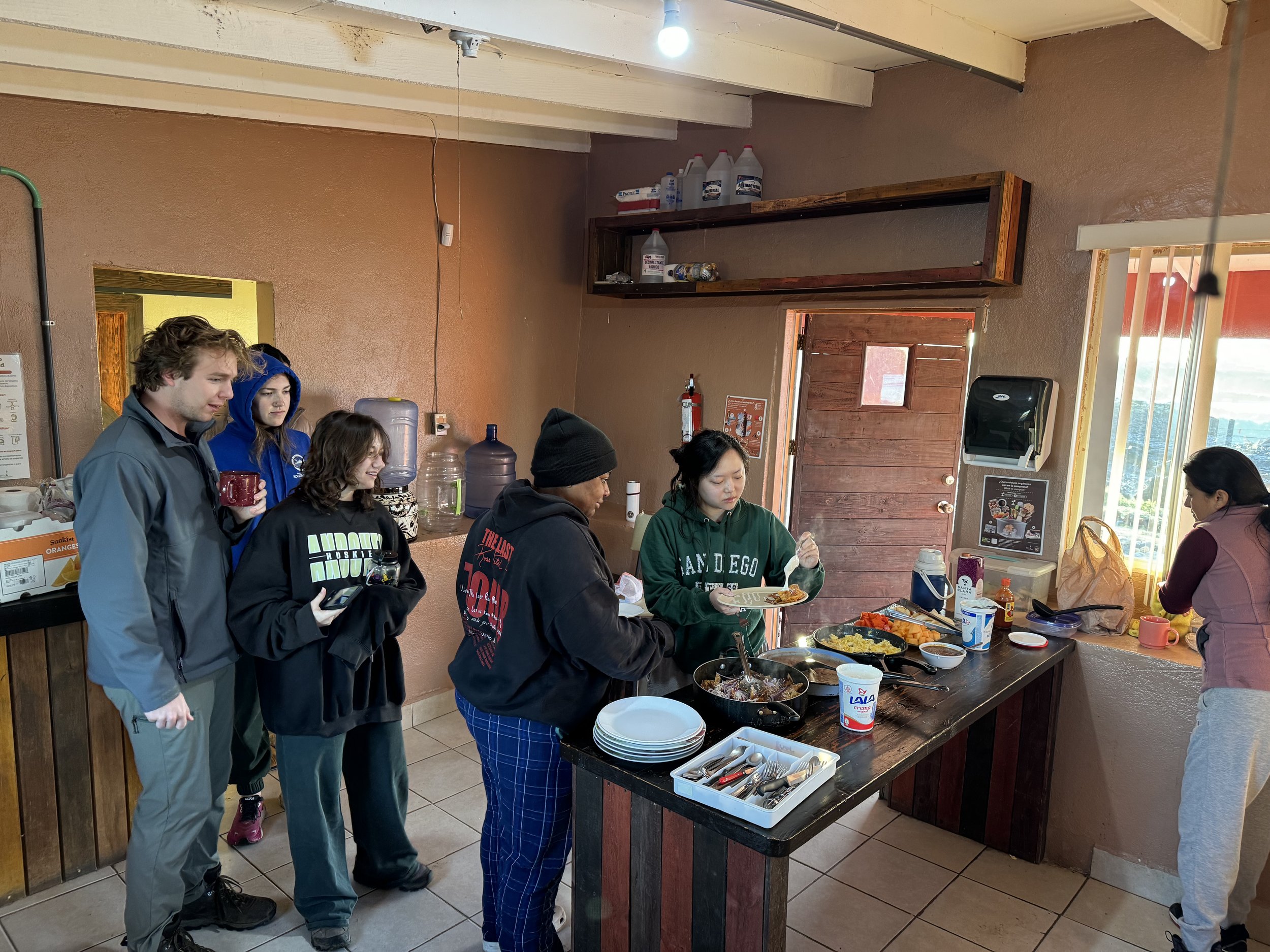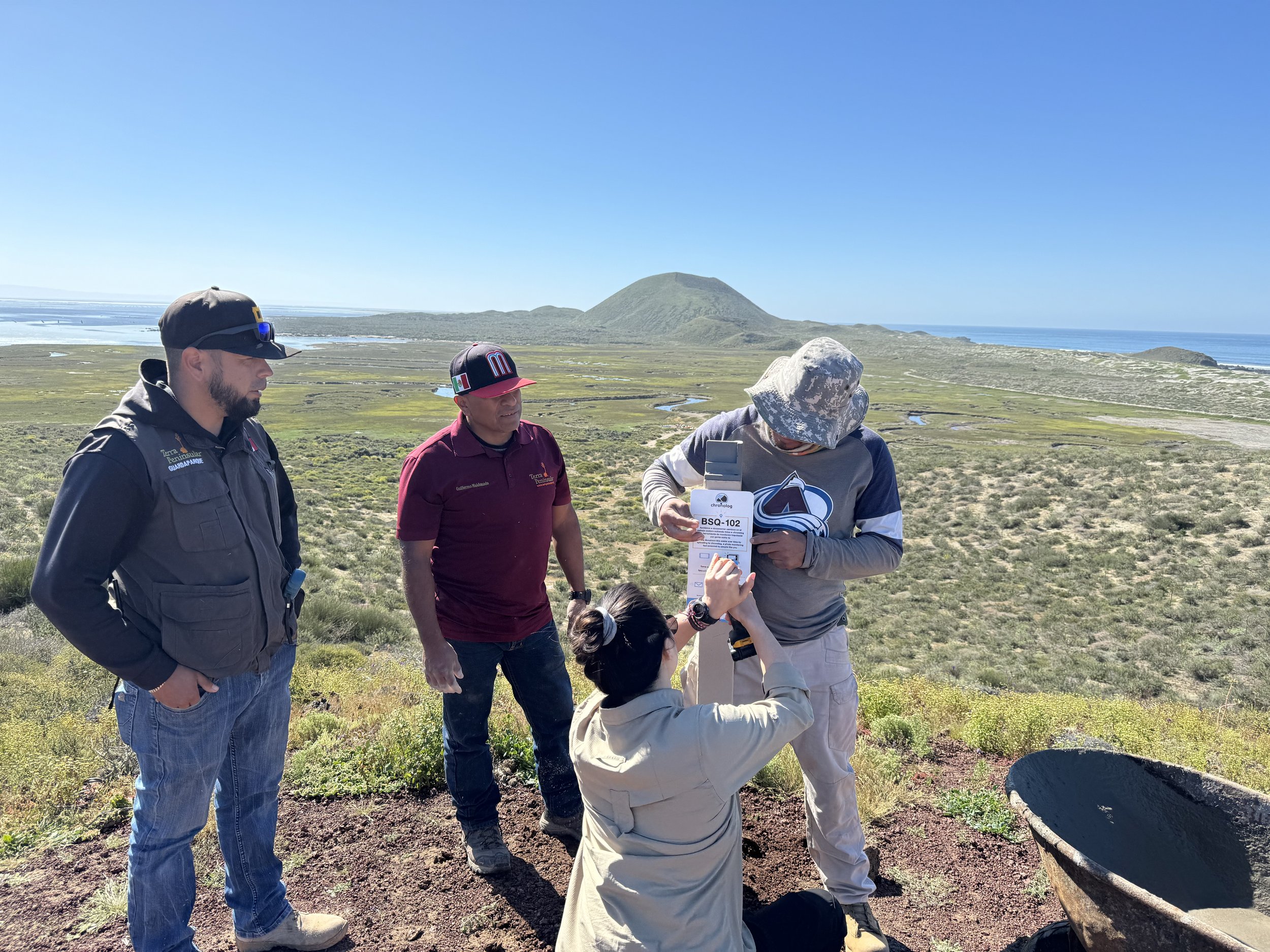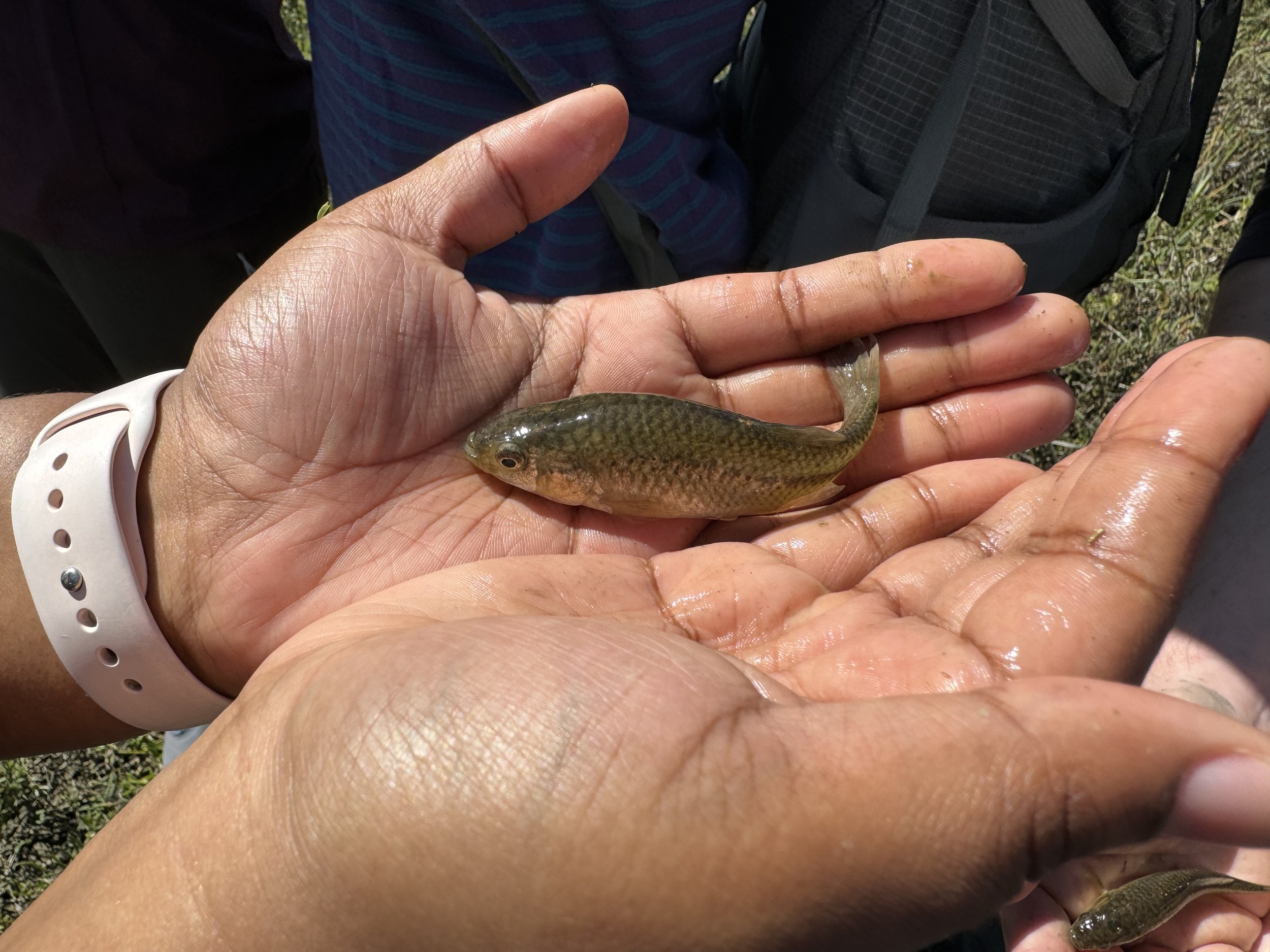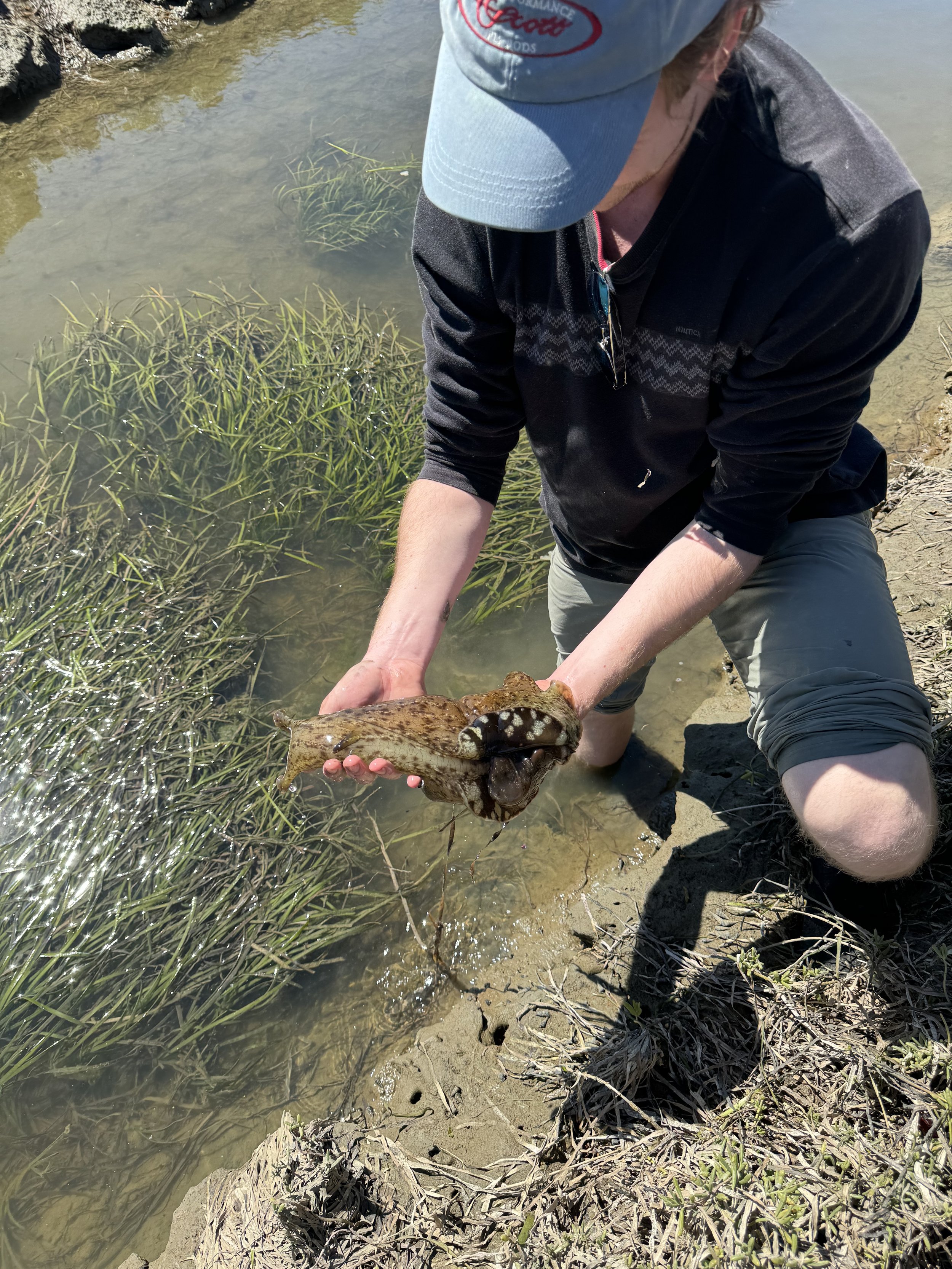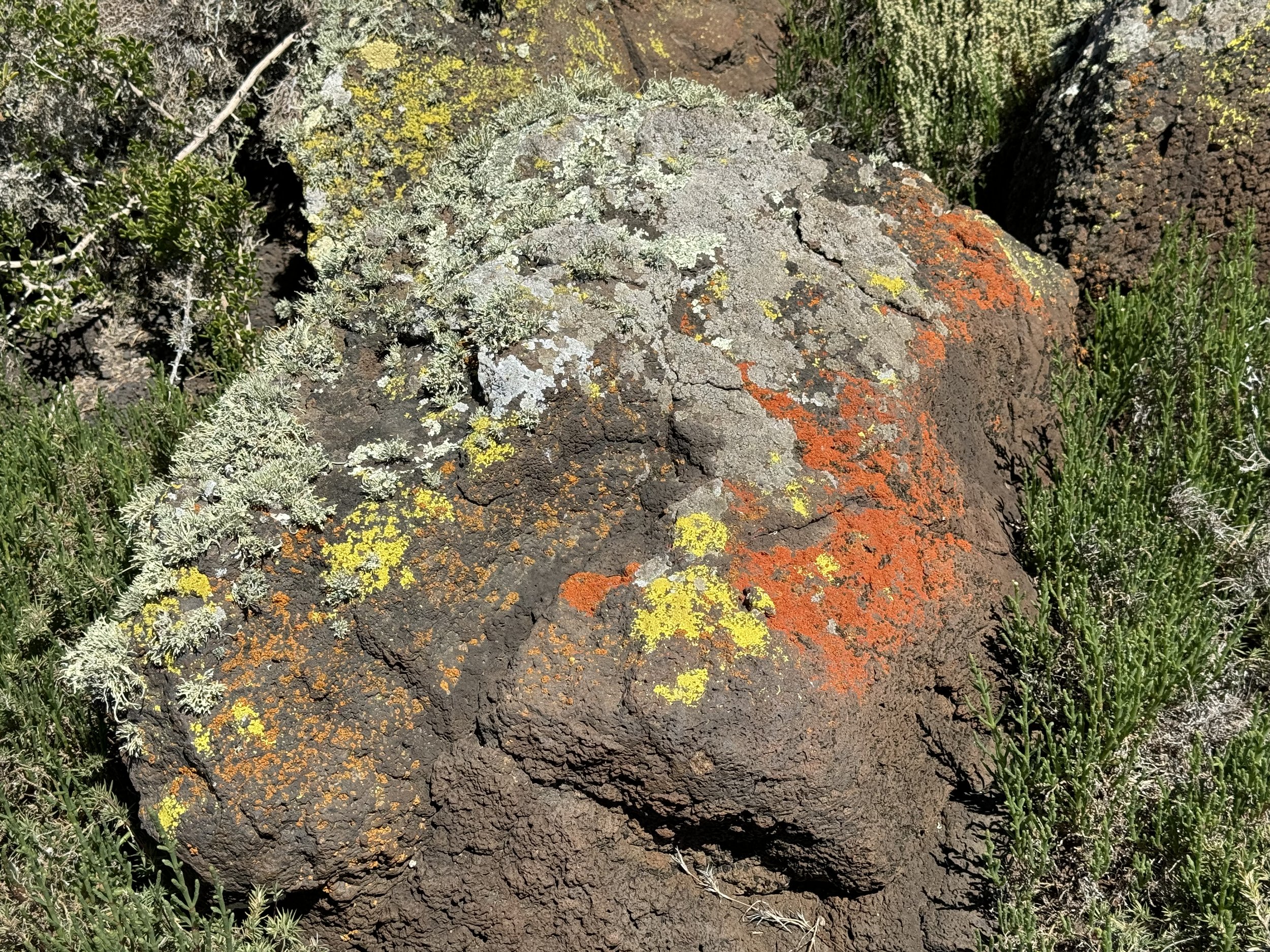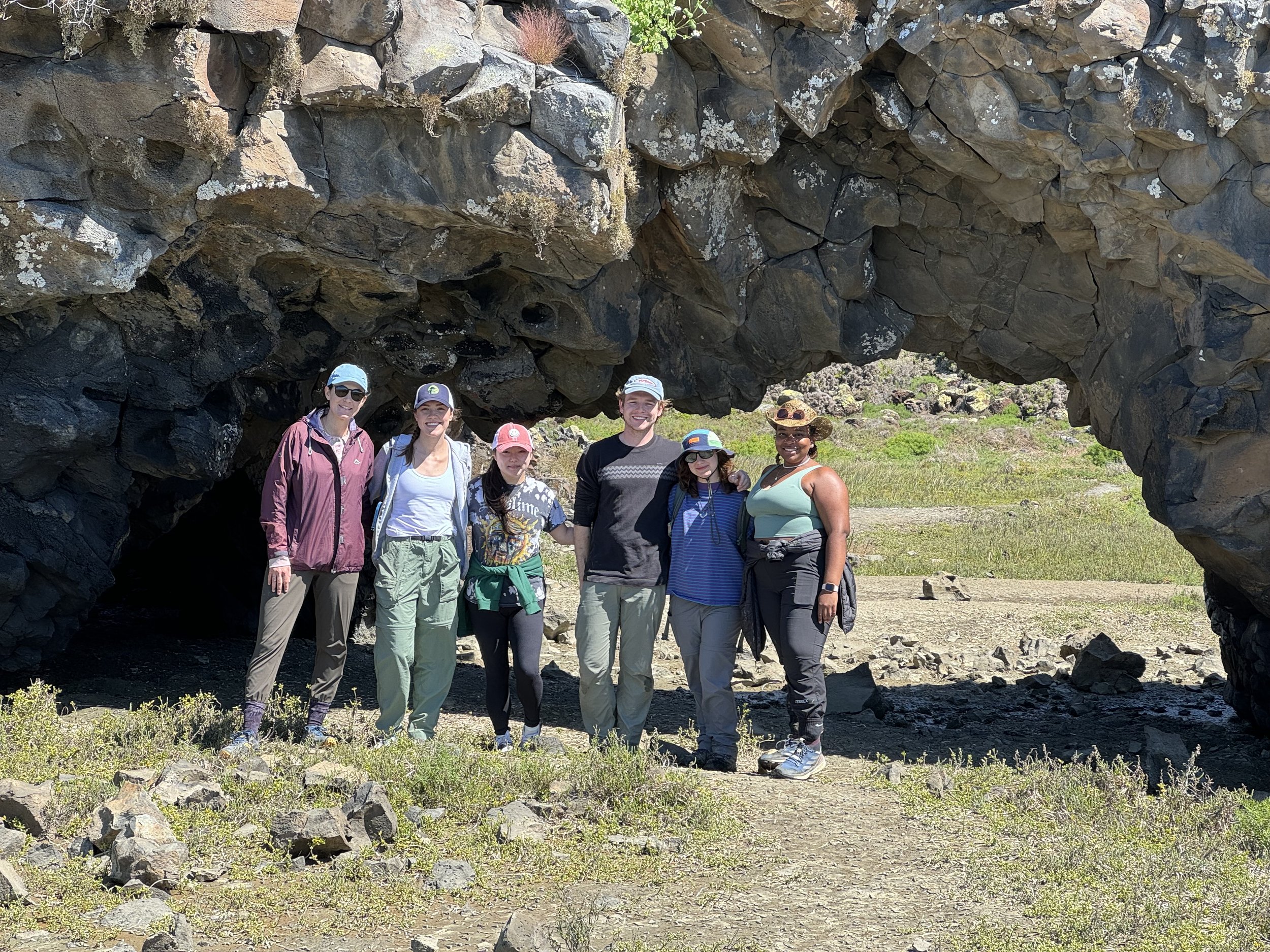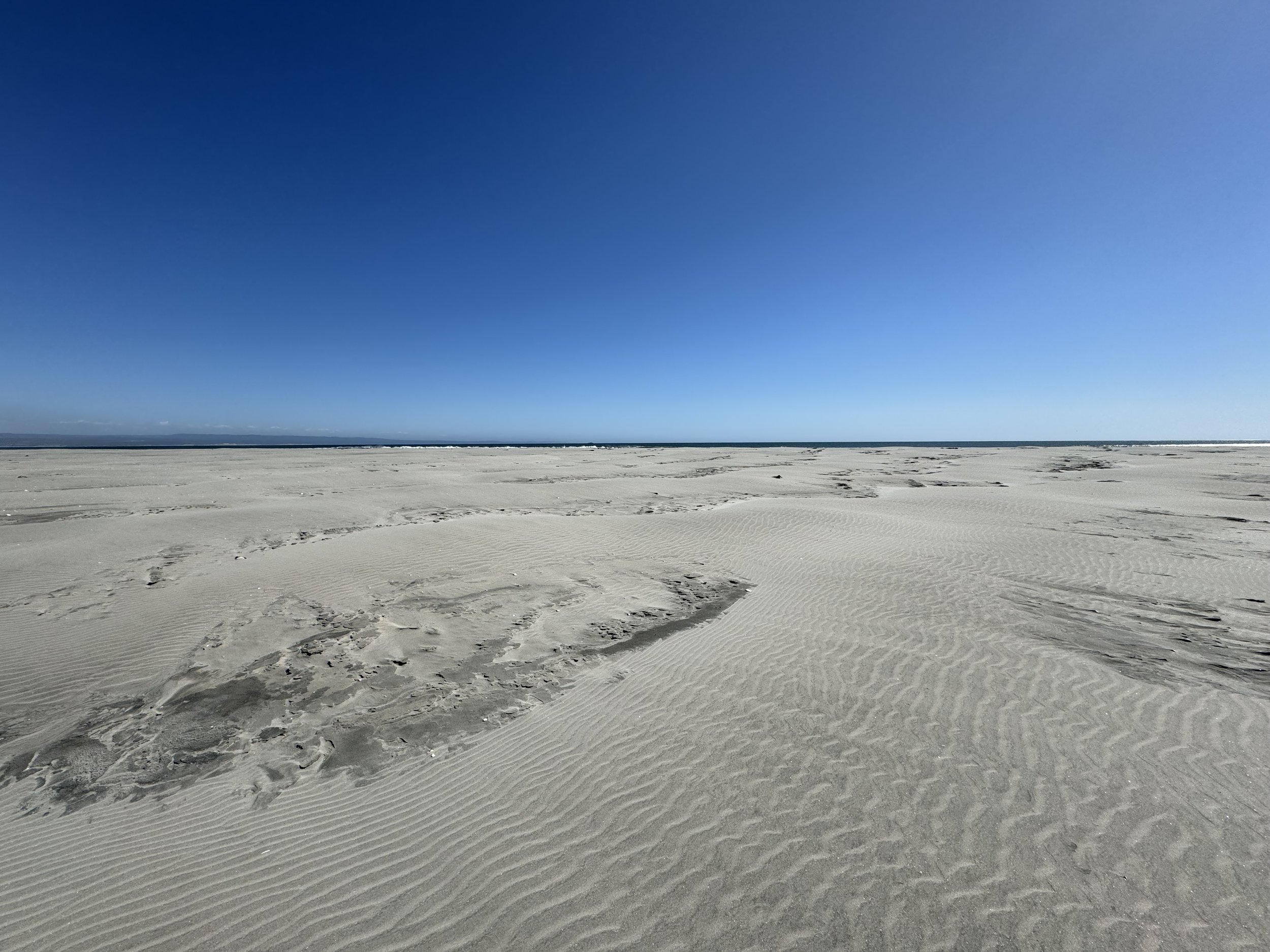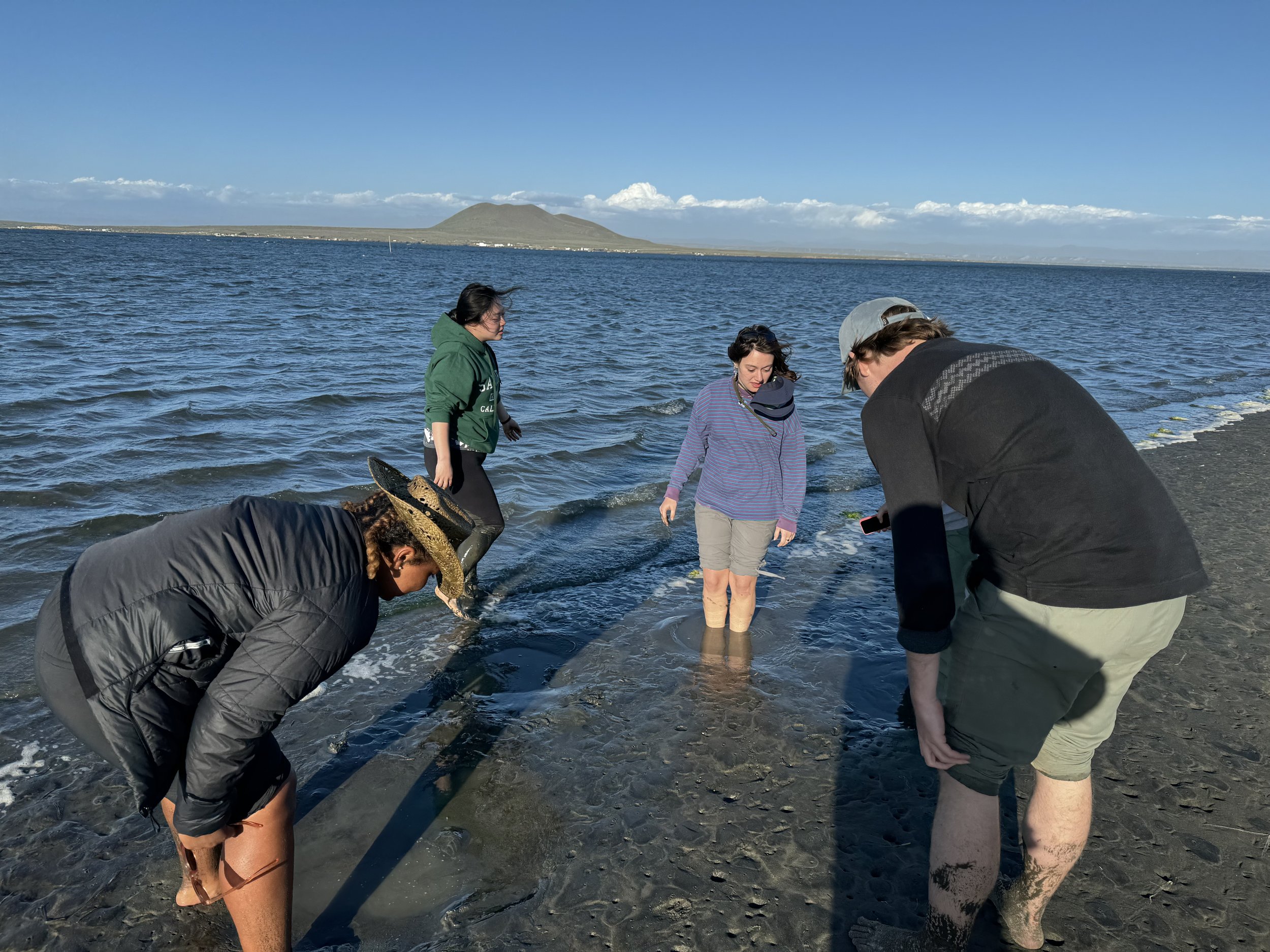Thanks to the generous support of my department (Environmental and Ocean Sciences) and USD’s “Enhanced Student-Faculty Interaction” fund, I went with students from my Wetlands Ecology course to Bahía de San Quintín. It was an eventful, fun, and productive trip.
Perhaps most importantly, the students who went on the trip are wonderful. It was a combination of a couple of graduate students and some undergraduates who were in my wetlands ecology course in the fall. It was an optional field trip (I am not comfortable insisting that students go to the field in Mexico), which in itself tends to select for more engaged and adventurous students. But the trip was also postponed last fall, when I got COVID just before we were due to leave. Thanks to the generosity of Terra Peninsular, we were allowed to roll our reservations at the field station over to the spring, and so that REALLY selected for a devoted, passionate group of students going.
We had perfect weather, and the folks at Terra did an amazing job of welcoming us and ensuring our trip was safe, productive, and fun.
On the way down, we stopped in Colonet to look at some vernal pools that are owned and managed by Jardín Botanico de San Quintín (JBSQ). They had two scientists meet us near the highway and lead us to the vernal pools, which were putting on their best show thanks to the rains this year. TONS of cool plants in bloom (many endemic); pools full of cladocerans and tadpoles; and exuberant, knowledgable guides really made this a highlight of the trip. I am very excited to go back and if at all possible collaborate with JBSQ on monitoring and conserving these pools.
We then arrived in Bahía de San Quintín, and set up at the field station Terra Peninsular operates. A talented cook from the local community of La Chorera, Guti, made us breakfast and dinner every night…chilaquiles, chiles rellenos, shark tacos (with tortillas made in front of us!), sting ray burritos, cucumber water, homemade salsa (so good we all asked for the recipe) - it was a real culinary experience in addition to a cultural and ecological one.
On our first full day we helped the rangers at Terra set up a Chronolog, so they can engage in community science with locals and visitors to the reserve. They are still sorting out the best location for the second Chronolog we brought (thanks to funding from San Diego’s Climate Science Alliance). Then we explored the wetlands (marveling at the huge Fundulus and a massive pair of sea hares), visited the dunes on the other side of the bay (Punta Azufre), and shared lunch at the Old Mill Restaurant. That last part was fun, but honestly not NEARLY as good as what Guti made for us).
We came back to the station, enjoyed the sunset, watched dolphins frolic, and then had a nice fire and did some stargazing.
The next morning Guti made us breakfast burritos for the road, we packed up, cleaned, and…we could not find one of the car keys. After tearing apart all of our bags and luggage, emptying each vehicle completely, and searching the field station, we realized that the key was permanently missing. The nice folks at Terra tried to call a locksmith for us, but it turns out that it was President Benito Juarez’ birthday, which is “Un Dia de Descanso Obligatorio” - in other words, no locksmith was coming to help us that day. We were all frustrated for about 30 minutes, and then decided to embrace the chaos. We realized that means two more delicious meals; a visit to town to get some fresh strawberries; and exploration of the dunes, beaches, and marshes in the reserve.
The next morning the locksmith showed up before dawn, made and programmed a new key, and we had a long, uneventful trip home!
I honestly cannot thank Terra, Guti, and JBSQ enough for such a delightful, educational, and memorable trip. The students were awesome - engaged, passionate, thoughtful, and some even talking about how the experience transformed their ideas about future careers.
Plus we now have some new protocols about handling keys on field trips. So positive in every sense! Check out the pictures below.
